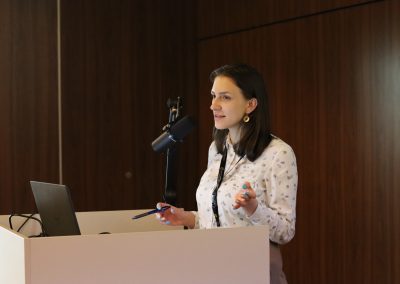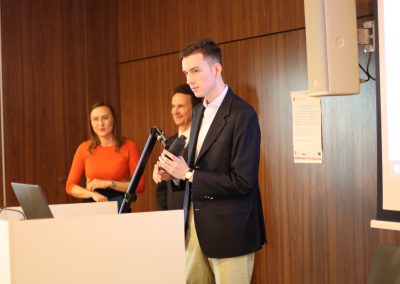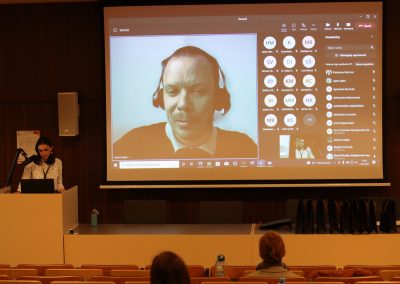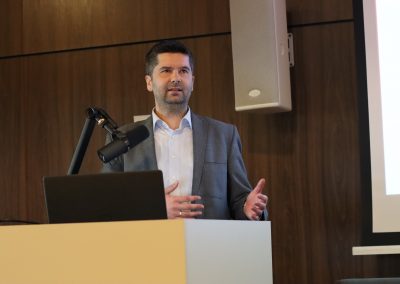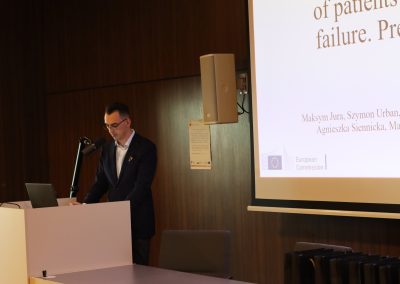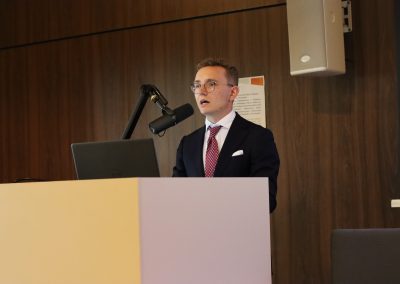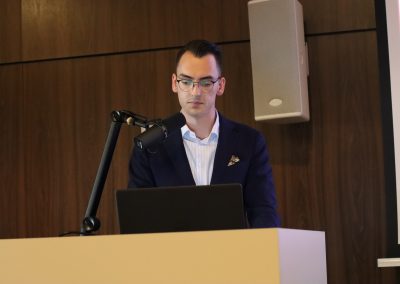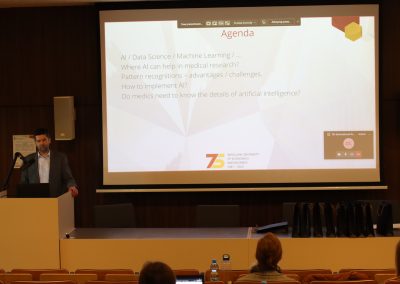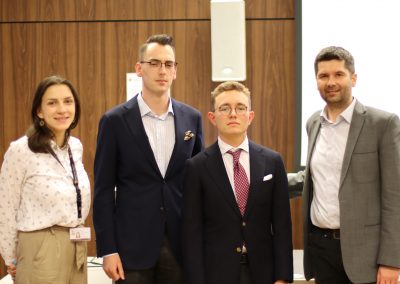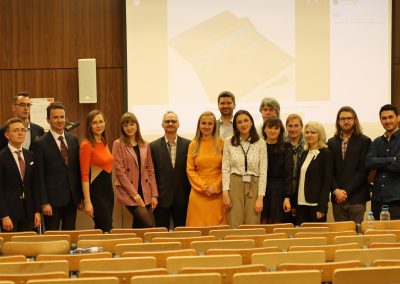"e-methodology" conference 20022
A We are proud to share with you the photos and the summary of the conference “e-methodology” 2022. This conference was held for the 7th time (for the 4th time at the Wroclaw Medical Univeristy) and this year HeartBIT_4.0 became the co-organizer. We had our team members on the scientific committee, organizing committee and as well as among the performers. Below you will find abbreviations of their speeches.
Description of the project HeartBIT_4.0 Application n of innovative Medical Data Science technologies for heart diseases – Agnieszka Siennicka, PhD; Katarzyna Kaczmar MA
During this presentation, our key scientific researcher and project coordinator presented the main assumptions of the project, the principles of Horizon 2020 projects and the results so far.
PUEB´s contribution to the HeartBIT_4.0 project – David Chudán, PhD
During this presentation, David Chudán from Prague University of Economics and Business as a partner of the project consortium presented WP4 achievements so far. The team of PUEB conducted several lectures in accordance with the project´s work packages, namely KDD and data mining methodologies, the Role of domain knowledge in the KDD process and Knowledge interpretation and presentation.
How to discuss AI with medical scientists and physicians?
– Maciej Pondel, PhD
Our partner from the Wroclaw University of Economics and Business presented the importance of discussing issues related to new technologies (BigDATA, machine learning, AI etc.) in the medical environment. The discussion on this topic is one of the most interesting results of our project, which combined the IT and medical environments Medics need to understand what is possible and what is not. They need to know how to formulate research questions and what to expect as outcome.There is software that allows the use of artificial intelligence without programming skills and in-depth knowledge of algorithms. It is possible to build multidisciplinary research teams and benefit from them.
Artificial Intelligence and new possibilities in cardiovascular research
– Szymon Urban
Szymon Urban is our PhD student (at WMU) who is working on the preparation of existing patient databases for the purposes of Artificial Intelligence. In his presentation, he focused on cardiovascular research. AI can analyse the data which were unavailable to the clinicians. Therefore, it represents enormous potential. New data analysis techniques can be helpful in reducing the quantity of performed diagnostic procedures, optimising in-patient and out-patient care, identifying high-risk groups and understanding the pathophysiology of cardiovascular diseases.
Predictive models based on machine learning algorithms among patients with heart failure – Mikołaj Błaziak
Mikołaj Błaziak is the PhD student in the field of cardiology as well. Art the conference he focused on the application of machine learning in research of patients with heart failure. Machine learning-based approaches seem to be able to develop and validate models which outperform traditional, well-established risk calculators. However, his research indicates a great necessity for external validation and more precise calibration of current artificial intelligence algorithms in order to be introduced into daily clinical practice.
Machine learning techniques in identifying distinct phenotypes of patients with acute heart failure. Preliminary results – Maksym Jura
This study aimed to analyse the natural phenotypic heterogeneity of the acute heart failure (HF) population and evaluate possibilities offered by clustering (unsupervised machine learning technique) in medical data assessment. Clustering techniques can be an effective tool in identifying and a better understanding of vital differences between clinically important subpopulations of heart failure patients with distinct clinical characteristics and outcomes.
AI in medicine and health psychology: Identifying variability of structures of beliefs about health locus of control in cardiac patients
– Agnieszka Siennicka, PhD
This presentation showed an application of artificial intelligence (AI) algorithms for identifying patterns of structure of beliefs related to health control in patients with heart disease in order to analyse the variability of those beliefs, as it may affect the patients’ attitude towards the disease and its’ management. Unlike the classic statistical analyses, our approach enables the interpretation of three parallel parameters characterising the patient’s beliefs without focusing on only one of them. Such an approach may help prepare qazi-personalised recommendations for a larger sample of patients.
All pictures were taken by Kamil Krasoń, University of Wroclaw


